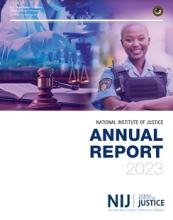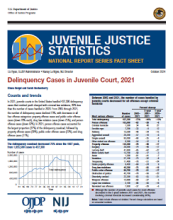Testing Gender-Differentiated Models of the Mechansms Linking Polyvictimization and Youth Offending Numbing and Callousness Versus Dissociation and Borderline Traits
Journal
Journal of Trauma & Dissociation
Date Published
2018
Agencies
NIJ-Sponsored
Publication Type
Research (Applied/Empirical)





